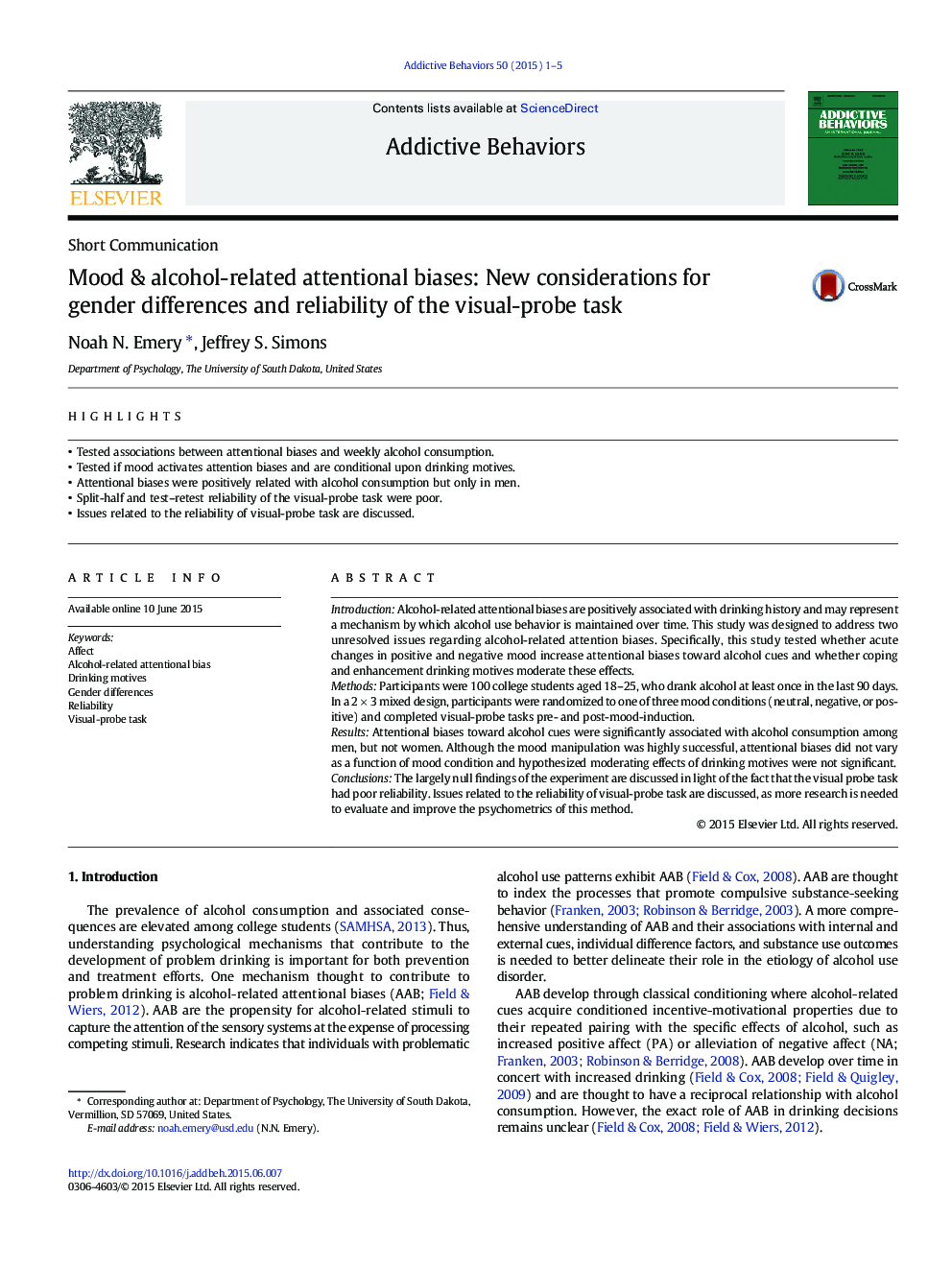| کد مقاله | کد نشریه | سال انتشار | مقاله انگلیسی | نسخه تمام متن |
|---|---|---|---|---|
| 898653 | 1472521 | 2015 | 5 صفحه PDF | دانلود رایگان |
• Tested associations between attentional biases and weekly alcohol consumption.
• Tested if mood activates attention biases and are conditional upon drinking motives.
• Attentional biases were positively related with alcohol consumption but only in men.
• Split-half and test–retest reliability of the visual-probe task were poor.
• Issues related to the reliability of visual-probe task are discussed.
IntroductionAlcohol-related attentional biases are positively associated with drinking history and may represent a mechanism by which alcohol use behavior is maintained over time. This study was designed to address two unresolved issues regarding alcohol-related attention biases. Specifically, this study tested whether acute changes in positive and negative mood increase attentional biases toward alcohol cues and whether coping and enhancement drinking motives moderate these effects.MethodsParticipants were 100 college students aged 18–25, who drank alcohol at least once in the last 90 days. In a 2 × 3 mixed design, participants were randomized to one of three mood conditions (neutral, negative, or positive) and completed visual-probe tasks pre- and post-mood-induction.ResultsAttentional biases toward alcohol cues were significantly associated with alcohol consumption among men, but not women. Although the mood manipulation was highly successful, attentional biases did not vary as a function of mood condition and hypothesized moderating effects of drinking motives were not significant.ConclusionsThe largely null findings of the experiment are discussed in light of the fact that the visual probe task had poor reliability. Issues related to the reliability of visual-probe task are discussed, as more research is needed to evaluate and improve the psychometrics of this method.
Journal: Addictive Behaviors - Volume 50, November 2015, Pages 1–5
